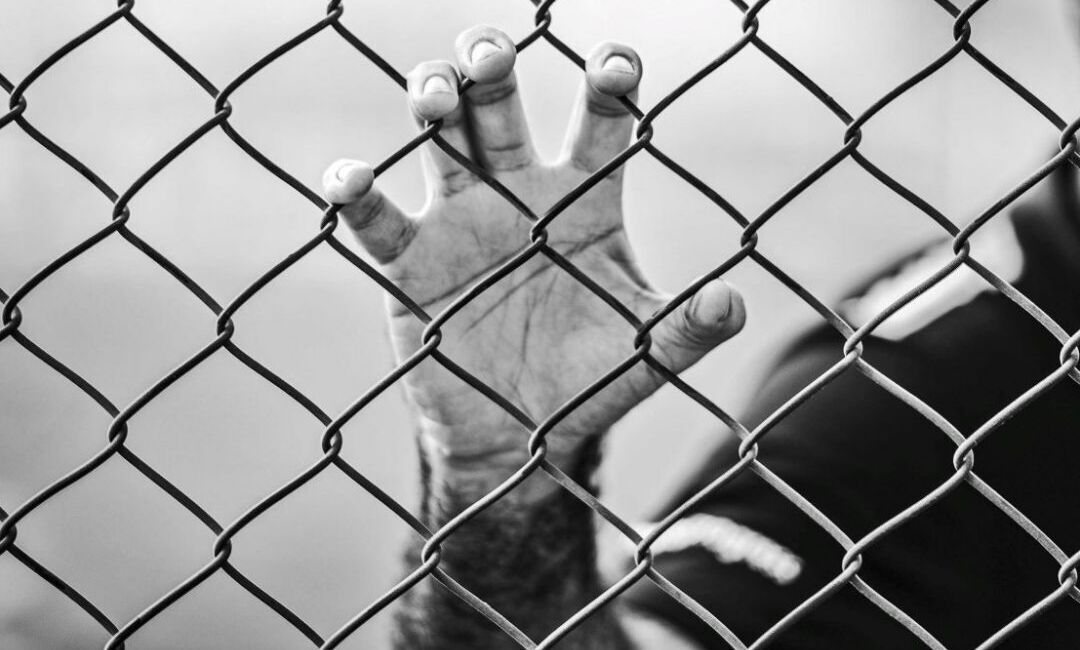Beyond just the moral and ethical considerations of how prisoners should be treated, maybe it’s time that we use this crisis to create a better, healthier environment for those we hope will one day return to society reformed and ready to start over in a recovering economy.
Is there dignity behind bars without soap?

If you’re reading this blog post, you may have listened to our recent Ideas at Work interview with Gregg Keesling about “Work as a Pathway to Hope.” We talked about Gregg’s work bringing people recently released from prison back into the economy through useful employment. As Gregg likes to say, “work is therapy.”
That interview was done in late February. Now, that seems like a distant memory of simpler times. An ancient time, B.C. – Before COVID.
Just a couple of months after that interview, the pressing question is not just how to help those recently released re-entry society, but how to keep incarcerated individuals safe from the immediate threat to their health and well-being.
Is COVID-19 a punishment that fits the crime?
Loss of liberty is the price our society exacts for breaking laws. But doing time behind bars for breaking the law and facing disease or death for breaking the law are not the same.
The online magazine The Point recently published a first-hand account of dealing with COVID-19 in prison. The short essay, In the Petri Dish, is written by Michael Murphy, a 34 year old inmate at Monroe Correctional Facility in Washington state. He notes that, even before coronavirus, contagious illnesses spread fast in prison:
I take every precaution to avoid becoming ill myself. Yet in the three-plus years that I’ve spent here at MCC, I’ve managed to contract every seasonal cold that’s gone around, and only avoided flu because I get the yearly vaccine. Some of my neighbors take the opposite approach, making a point to catch whatever’s currently being passed from hand to hand, so they can get it over with, as it’s inevitable they’ll catch it eventually anyway.
The Washington Department of Corrections implements social distancing practices like those of us living on the outside, but its efficacy is questionable:
In the dining halls, we’re being ordered to sit one to a table, and to all face in the same direction, which in theory might not be a bad idea if it weren’t for the fact that in order to enforce these regulations, the guards stand around in groups so close to each other that they’re almost touching. With no visitors, teachers or volunteers allowed beyond the wall, COVID-19 has one likely way inside: by hitching a ride with one of them. It seems that if the goal were truly to halt any potential spread, social distancing would start with the most probable carriers.
Is personal hygiene a luxury?
Benjamin John Finnestad is a registered sex offender, accused in 2018 of trying to lure underage girls online. But Finnestad is also an over-40 cancer survivor, which puts him at higher risk for COVID-19. Conor Friedersdorf writes in The Atlantic about how Finnestad’s attorney requested that a federal judge to release Finnestad to house arrest with an ankle bracelet during the pandemic while he awaits trial.
While researching the case, Friedersdorf was surprised to discover that prisoners must purchase their own soap, and that hand sanitizer is contraband, running counter to federal guidelines:
During pandemics and normal times alike, one piece of public-health advice remains unchanged: Wash your hands often, with warm, soapy water, especially after using the bathroom or before eating. Even the Federal Bureau of Prisons declares in its 2018 guidelines on influenza epidemics, “Educate staff and inmates that the following measures help protect against the spread of influenza: Regular hand washing—especially after sneezing, coughing, or touching the face.”
Friedersdorf isn’t just saying that prisoners should have access to soap, showers, and good personal hygiene because, a civilized society treats even those that transgress laws with some basic human dignity. He’s also saying that not upholding basic hygiene creates a problem for those of us outside prison walls:
Treating soap as a luxury that prisoners must choose in lieu of a snack or shaving cream or a book or a phone call with family members creates obvious perverse incentives that affect not only the inmates, but all of the people with whom they interact, and even taxpayers, since we all pay for the doctors who treat the spread of prison illnesses.
Rethinking the status quo
The coronavirus has exposed many examples of status quo behavior being changed because of the crisis. Much of this is good, like allowing doctors to across state lines to treat patients and loosening regulations that hinder or slow down personal protective equipment manufacture.
The situation with incarceration should be no different. Doing nothing creates greater risk for those of us outside of prison and is a morally dubious way to treat the incarcerated. Beyond just the moral and ethical considerations of how prisoners should be treated, maybe it’s time that we use this crisis to create a better, healthier environment for those we hope will one day return to society reformed and ready to start over in a recovering economy.